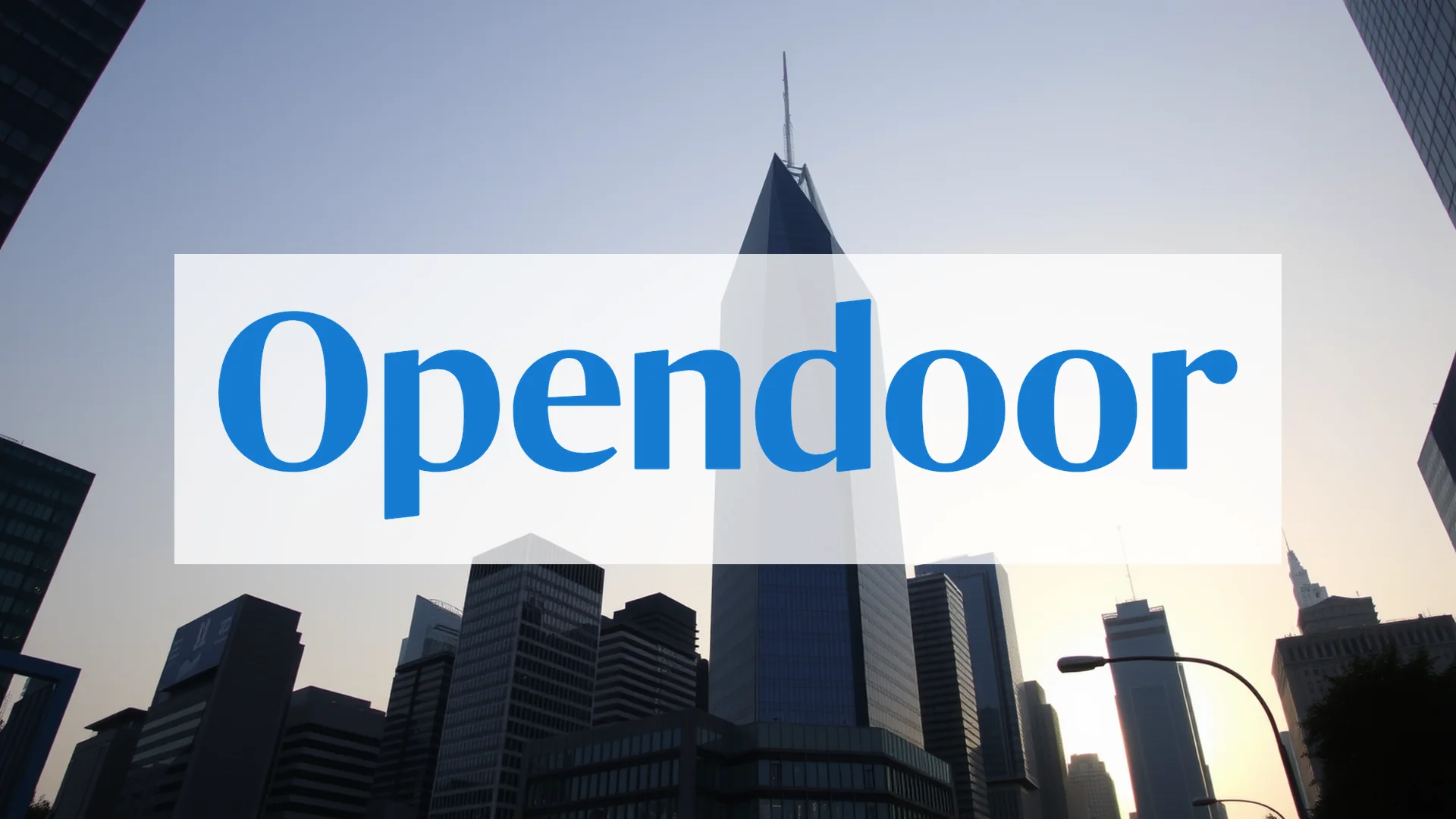Opendoor shares are staging one of the most remarkable market recoveries of 2025, fueled by a sweeping executive overhaul that has completely transformed the technology firm’s leadership structure. The appointment of a new AI-focused chief executive and the return of the company’s founders have already helped drive gains exceeding 500 percent. But can this investor enthusiasm withstand the reality of mixed financial results?
Executive Suite Sees Complete Transformation
On September 10th, the company announced Kaz Nejatian, previously Chief Operating Officer at Shopify, would take over as the new Chief Executive Officer. He replaces Carrie Wheeler, who stepped down in mid-August following pressure from activist investors. In a parallel move, co-founders Keith Rabois returned as Chairman and Eric Wu rejoined as a board member—a shift the company itself has labeled its entry into “founder mode.”
Just days later, another surprise development emerged: Chief Financial Officer Selim Freiha unexpectedly departed and was immediately replaced by interim CFO Christy Schwartz, who had previously held the position from 2022 through 2024.
AI Visionary Takes Command
Nejatian brings significant artificial intelligence expertise from his tenure at Shopify, where he managed products serving hundreds of millions of users. His compensation package includes a $1.2 million base salary plus substantial stock options.
The new CEO outlined his vision for the real estate market, stating, “With AI, we now have the tools to radically simplify, accelerate, and secure the home transaction process.” Chairman Rabois reinforced this direction, commenting, “There was literally only one choice for this role: Kaz. He’s a decisive leader who drives product innovation at scale and possesses a deep understanding of how AI can revolutionize business operations.”
Founders Return with $40 Million Investment
The comeback of Opendoor’s founding team is backed by a $40 million PIPE financing round from Khosla Ventures and co-founder Eric Wu. Rabois, a Managing Director at Khosla Ventures and honoree on the Forbes Midas List, brings additional experience from his roles at PayPal, LinkedIn, and Square.
This leadership shift represents a strategic pivot for Opendoor, which has faced profitability challenges since its 2020 public debut. The company’s iBuying approach—directly purchasing and selling residential properties—has proven particularly difficult amid market volatility and rising interest rate environments.
Should investors sell immediately? Or is it worth buying Opendoor?
Financial Performance Presents Mixed Picture
Despite the executive optimism, recent financial metrics reveal conflicting signals:
- Q2 2025: Revenue reached $1.57 billion (a 5% year-over-year increase)
- First positive adjusted EBITDA since 2022 ($23 million)
- GAAP net loss narrowed to $29 million
However, the outlook for Q3 2025 highlights continuing challenges: projected revenue of $800-875 million (representing a potential 36% annual decline) and expected adjusted EBITDA losses between $21-28 million. Planned home acquisitions have been reduced to just 1,200 units—a significant drop from 1,757 in Q2 and 3,504 during Q3 2024.
Meme Stock Frenzy or Sustainable Turnaround?
The soaring share price has pushed market capitalization to between $7-8 billion, representing a price-to-sales ratio of approximately 1.5 based on trailing twelve-month figures. Some market observers detect elements of meme stock dynamics without fundamental support, pointing to the capital-intensive business model and thin margins. The stock’s volatility underscores this concern, with 93 trading sessions experiencing moves exceeding 5% within a single year.
Strategic Shift Toward AI and Agent Partnerships
Under its new leadership, Opendoor is executing a strategic pivot toward an AI-powered, software-first platform. Expansion of its agent-led sales channel aims to reduce capital requirements, while artificial intelligence is expected to accelerate home transactions.
Within the coming weeks, the company plans to expand operations across the entire continental United States—a substantial scaling effort despite current housing market pressures and elevated mortgage rates.
The Path Forward
This corporate transformation positions Opendoor for a fundamental business model evolution. With the technology background of its new CEO and the return of its founding team, the company appears poised for renewal. The next critical test arrives November 6th with the Q3 earnings release—the first full quarter under new management. These results will determine whether the AI vision holds substance or if the stock’s spectacular rally lacks foundation.
Ad
Opendoor Stock: Buy or Sell?! New Opendoor Analysis from February 7 delivers the answer:
The latest Opendoor figures speak for themselves: Urgent action needed for Opendoor investors. Is it worth buying or should you sell? Find out what to do now in the current free analysis from February 7.
Opendoor: Buy or sell? Read more here...












